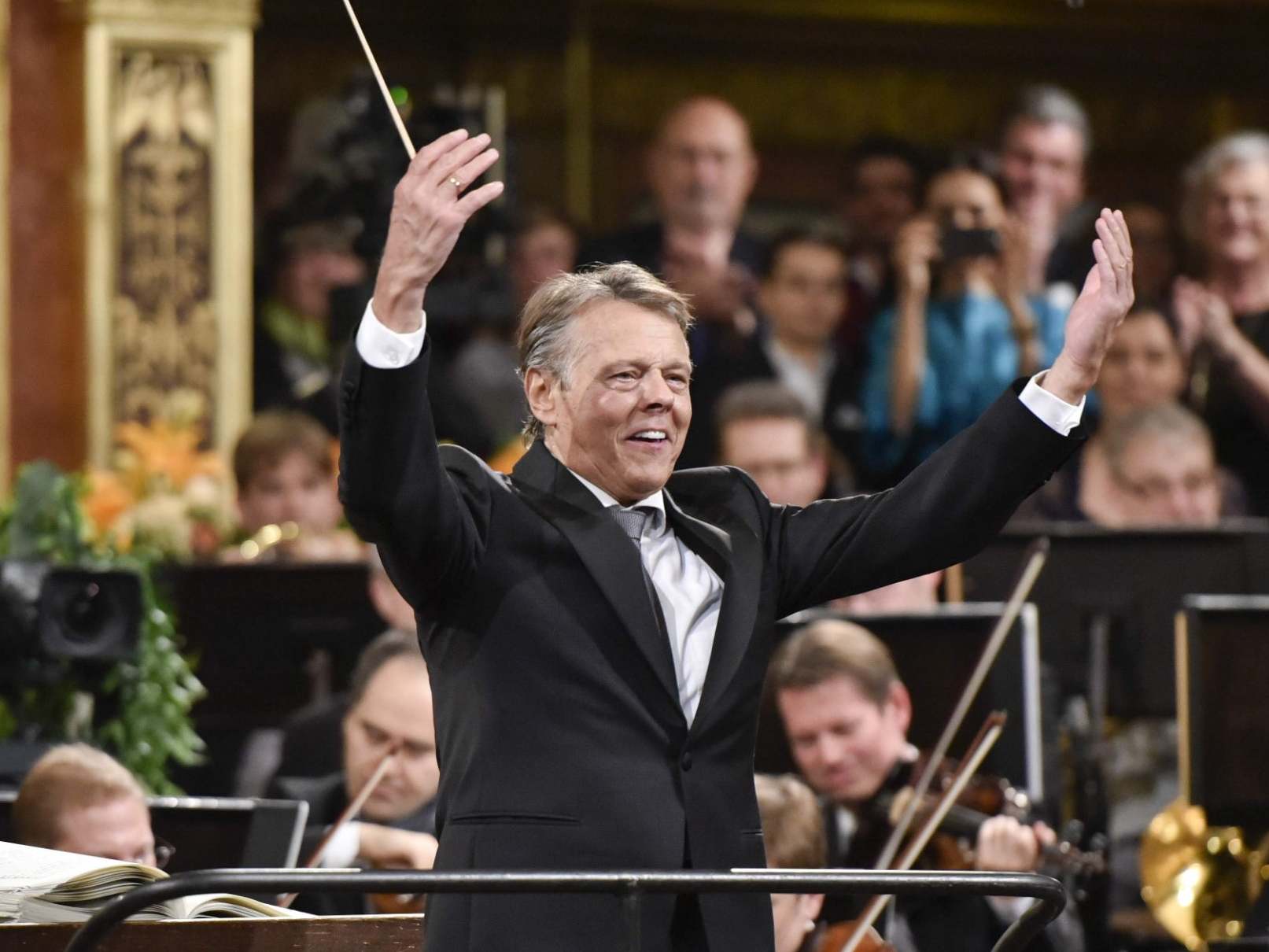Mariss Jansons: Conductor ranked among the world’s best
Known for his perfectionism and versatility, he brought intensity and passion to the stage

Mariss Jansons was a Latvian-born conductor ranked by classical music aficionados among the greatest maestros in the world.
He was chief conductor of the Bavarian Radio Symphony Orchestra, and until 2015 he had also led the Royal Concertgebouw Orchestra in Amsterdam, making him the only conductor to appear twice on Gramophone magazine’s 2008 list of the 20 best orchestras in the world. (The Amsterdam ensemble was first, the Bavarian orchestra sixth.)
Jansons, who has died aged 76, spent very nearly his entire life steeped in music. His mother, a Jewish opera singer, gave birth to him in hiding during the Nazi occupation of Riga. After the war, Jansons spent much of his childhood accompanying her and his father to their rehearsals and performances. At home, the boy would array buttons and other items on his bed to form an imaginary ensemble that he would lead with a pencil in lieu of a baton.
His musical upbringing, combined with mentorship by celebrated conductors including Evgeny Mravinsky in Leningrad (now St Petersburg) and Herbert von Karajan on the other side of the Iron Curtain, groomed Jansons for a career in the highest echelons of classical music, even as Cold War tensions in some ways limited his career.
His first major appointment, in 1979, was in Oslo. Soviet authorities, weary and embarrassed by artistic defections, had previously barred Jansons from accepting musical opportunities in the west but allowed him to take the Oslo post on the condition that his title as “music director” remain unofficial.
Jansons was credited with turning the Oslo Philharmonic, where he remained until 2002, into a world-class institution. He joined the Bavarian Radio Symphony Orchestra in 2003 – succeeding Lorin Maazel, whom he also followed in Pittsburgh – and the Royal Concertgebouw Orchestra in 2004.
His unremitting international travel proved overly taxing and ultimately led him to step down from his post in Pittsburgh and work primarily in Europe. He appeared regularly with the London Philharmonic Orchestra and at the Salzburg Festival in Austria and was invited several times to conduct the Vienna Philharmonic Orchestra’s annual new year’s concert at Vienna’s Musikverein.
On both sides of the Atlantic, Jansons was known for his rigorously prepared performances. During rehearsals, he would move throughout a concert hall, instructing musicians to scoot their chairs one way or the other to achieve what he considered the perfect sound. But those technical concerns, however important, were always of secondary interest to him.
“I was taught by perfectionists, so it goes without saying that getting the basics right is very important to me,” he once said. “Of course you ask players to play a little louder or a little quicker. But the notes on the page are only signs. You have to find what the composer wanted to express behind the notes, which in the most profound music takes you very deeply into the human condition. And if it is performed well it can be one of the most spiritually nourishing experiences imaginable.”
Mariss Ivars Georgs Jansons was born in Riga in 1943. He studied the violin and later trained at the conservatory in Leningrad, where his father had been made assistant conductor to Mravinsky at the Leningrad Philharmonic.
Jansons recalled with admiration the versatility of Mravinsky’s repertoire, which ranged from Russian music to the works of Mozart, Beethoven, Brahms and Wagner. Later, in his own career, Jansons would distinguish himself similarly. He was particularly known for his interpretations of Russian composers such as Tchaikovsky, Rachmaninoff and Shostakovich.
But Jansons was equally capable conducting the works of Haydn, Mozart, Beethoven and Schubert. The Guardian noted his “lacerating anguish in Mahler symphonies, blistering climaxes in Strauss tone poems, intense, finely wrought detail in almost any repertoire”.
A prize in Von Karajan’s international conducting competition boosted Jansons’s profile in the early 1970s. Like his father, he was an assistant conductor at the Leningrad Philharmonic before accepting his position in Oslo, where he began to make his international reputation.
In 2017 Jansons caused a stir when he told The Daily Telegraph that he “grew up in a different world, and for me seeing a woman on the podium… well, let’s just say it’s not my cup of tea”. He later apologised.
His health was poor in later life, and in 1996, while conducting Puccini’s La Boheme for the Oslo Philharmonic, he suffered a near-fatal heart attack on the podium. His ailments, while sometimes making it a struggle for him simply to complete a performance, brought an added poignancy to the sound that he coaxed from his musicians.
He is survived by his second wife, Irina Outchitel, and by a daughter from his first marriage.
Mariss Jansons, conductor, born 14 January 1943, died 30 November 2019
© Washington Post
Join our commenting forum
Join thought-provoking conversations, follow other Independent readers and see their replies
0Comments